After a growing list of costly and dangerous blunders, a proposed charter amendment could safeguard the County’s sovereignty while preventing foreign influences from undermining local government.
There’s one proposal before the Clallam County Charter Review Commission that hasn’t drawn the attention it deserves. It’s not flashy or controversial on the surface—just the addition of a single word. But that one word could dramatically reshape how our county does business and whom it does business with.
The proposal is to add the word “American” to Section 1.20 of the County Charter, which currently allows Clallam County to partner with “any one or more governments, governmental agencies, [or] municipal corporations.” By inserting “American” before those entities, the County could ensure that all intergovernmental cooperation occurs only with governments subject to U.S. law and oversight.
Section 1.20: Intergovernmental Relations: The county may in the exercise of its powers and the performance of its duties, whether or not specifically assigned by this Charter to any officer, board, commission, or agency agree by contract or otherwise to participate jointly or in cooperation in any function, project, or activity with any one or more American governments, governmental agencies, municipal corporations, in any manner permitted by law, and to share the costs and responsibilities of such functions, projects or activities.
Under the foreign influence
Why does this matter? Because right now, Clallam County is engaging with foreign entities—intentionally or otherwise—in ways that pose real risks to our sovereignty, financial health, and public safety.
Take the Dungeness River Management Team, it’s a partnership that includes Clallam County, the Jamestown S’Klallam Tribe, and the Stockholm Environment Institute (SEI)—a foreign NGO funded by the Swedish government. SEI’s involvement in local water planning raises serious concerns. American taxpayers already fund agencies like the Department of Ecology and the Environmental Protection Agency to manage our natural resources. Why are we inviting a Swedish organization, with its own national interests, into local water management?

The “incident” that nearly wiped out a community
Even more troubling is what happened during the Lower Dungeness Floodplain Restoration Project. The Jamestown Tribe—recognized as a sovereign nation—pressured the County to close Towne Road, despite overwhelming opposition from local residents. When the County delayed, the Tribe removed a portion of a protective dike early, nearly causing a mass-casualty flooding event. To protect the community, the County had to rush the construction of a protective levee—a response estimated to have cost taxpayers $10 million. The Tribe contributed $500,000—after the County issued a resolution absolving them of liability.
Why couldn’t we hold them accountable? Because sovereign nations cannot be sued in local court. If Clallam County wanted to pursue legal action, it would have to sue the Tribe in federal court—an expensive, drawn-out process that this economically strained County is ill-equipped to handle.
Ongoing risks and future projects
That incident was bad enough, but it wasn’t the end of the damage. There is mounting evidence that this same partnership is causing seasonal flooding in the 3 Crabs neighborhood. And while the County acknowledges the risk, it doesn’t have funding to fix the problem for several years—leaving those residents exposed to future flood threats.
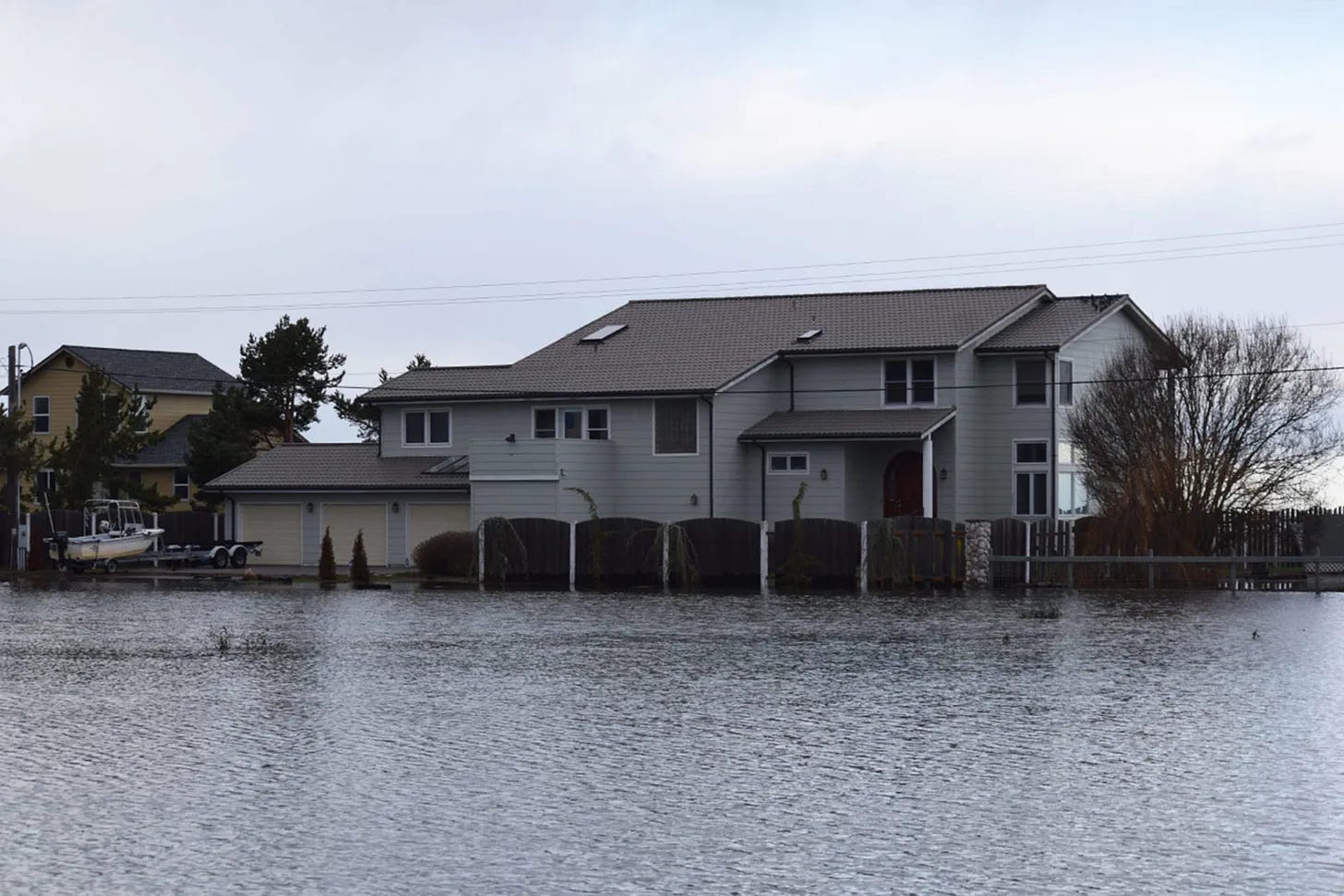
Despite these red flags, the County is doubling down—now partnering with the Jamestown Tribe again on a proposed above-ground reservoir. This isn’t a modest pond—it’s a massive project to be constructed above earthquake fault lines and directly beneath high-voltage transmission infrastructure. If the Dungeness floodplain project was complicated and costly, this reservoir proposal is exponentially more risky. And yet, Clallam County is once again proceeding as if it’s equipped to handle a partnership with a sovereign nation on a multi-million-dollar infrastructure gamble.
It is not.
A pattern of missteps
These aren't isolated missteps—they are evidence of a pattern. Clallam County simply does not have the experience, skill, or resources to effectively interface with sovereign nations or foreign-funded institutions. Our local government struggles with basic staffing and infrastructure maintenance. It cannot also be expected to navigate the legal, financial, and jurisdictional complexity of dealing with sovereign or foreign entities.
This is why the proposed one-word change is so important. By limiting intergovernmental cooperation to American entities, we could restore an essential layer of accountability and ensure that all partners in County projects are subject to the same legal standards as the County itself. This change would not bar the County from working with tribes—federal agencies like the Bureau of Indian Affairs can serve as intermediaries and regulators. It simply ensures that the County is not left to fend for itself in disputes where it has no legal leverage.
ICLEI is a continuing concern
And it’s not just tribes or foreign think tanks. Clallam County has flirted for years with ICLEI – Local Governments for Sustainability, an international NGO based in Germany and originally founded as the “International Council for Local Environmental Initiatives.”
ICLEI promotes global climate goals and encourages partnerships between industrialized countries and developing nations like China and India. Its members must prioritize “problems of global significance” and agree to a shared international charter.
In our case, the City of Port Angeles is a member of ICLEI and, as such, has agreed to “build and serve a worldwide movement.”
So is the Jamestown S’Klallam Tribe.
Tribes benefit from ICLEI’s agenda because it promotes “compensation mechanisms to former colonized” communities, which include “Native communities whose resources have been exploited.”
The significance of global influence to the Jamestown Tribe was evident in late 2023 when the Tribe thanked Clallam County Commissioners for “requesting global and community input for determining the future use of the new levee surface.” What global input was important in Clallam County deciding if a road owned and funded by county taxpayers would reopen?
Do we really want a small, under-resourced county like Clallam trying to navigate relationships with foreign NGOs, sovereign tribes, and foreign-funded think tanks—all at once?
The ICLEI loophole
While Clallam County officially ended its membership with ICLEI in 2011 due to public opposition, subsequent actions suggest that the decision has been circumvented.
In 2019, Commissioner Mark Ozias advocated for rejoining ICLEI. Although the proposal was rejected due to concerns over its influence on local governance, the county still found a way to align itself with ICLEI's methodologies.
By engaging with Cascadia Consulting Group, a firm that employs ICLEI's tools, the county indirectly adopted ICLEI’s strategies without formal membership. This alignment raises questions about the transparency of the decision-making process, as projects that reflect ICLEI's methodologies—such as the Hazard Mitigation Plan and Comprehensive Plan Climate Element—were developed behind the closed doors of the North Olympic Development Council (NODC) with little public involvement. The NODC is an ICLEI member and recruiter led by its president, Clallam County Commissioner Mark Ozias.
In February 2024, the county approved a $369,535 contract with Cascadia Consulting Group. This was a contract that the commissioners later denied entering, and when confronted, they claimed they had forgotten. Cascadia’s work, particularly in updating the county’s plans, involves methodologies linked to ICLEI’s "Clear Path" tool, further entrenching the county's indirect association with international sustainability agendas. The current draft of the plan heavily favors ICLEI member Jamestown Tribe. This move has raised concerns that Clallam County’s policies are being influenced not only by local special interests but also by the priorities of international organizations with global agendas.
Common sense and accountability
This is not about isolationism. It’s about jurisdiction, accountability, and self-preservation. Our County government is barely able to keep its own staff paid. We are in no position to play diplomat, ambassador, and international negotiator.
Keeping our charter grounded in common sense would ensure that Clallam County collaborates with American governments—local, state, or federal—where we understand the rules, share the same legal framework, and can hold each other accountable when issues arise.
All it takes is one word.
Have a message for the Clallam County Charter Review Commission? All 15 commissioners can be reached by emailing the Clerk of the Board at loni.gores@clallamcountywa.gov (specify “CRC”).
Last week, readers were asked if recent allegations against the Olympic Humane Society would affect their willingness to donate or support the organization. Of 246 votes:
95% said, “Yes, I would withhold support.”
2% said, “No, I will continue to support OPHS.”
3% were unsure and needed more information.




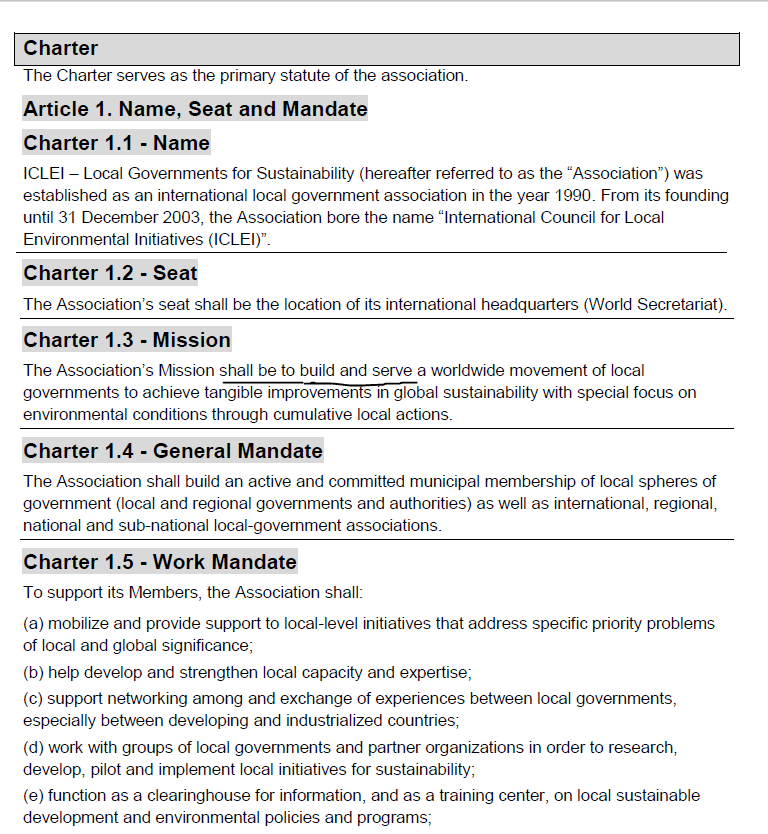
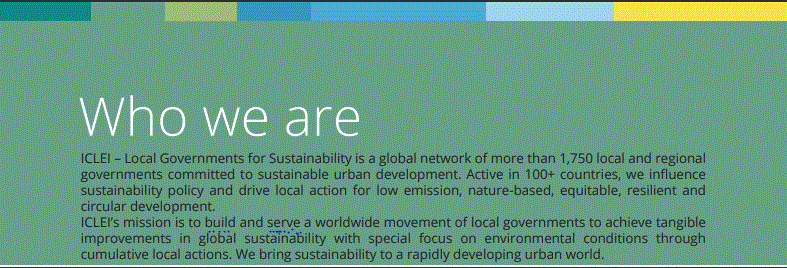
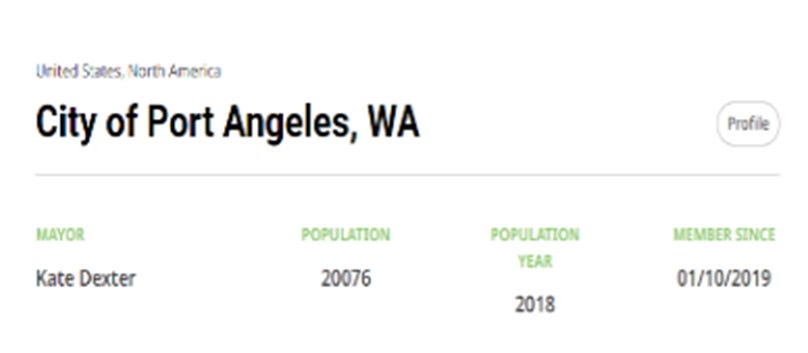
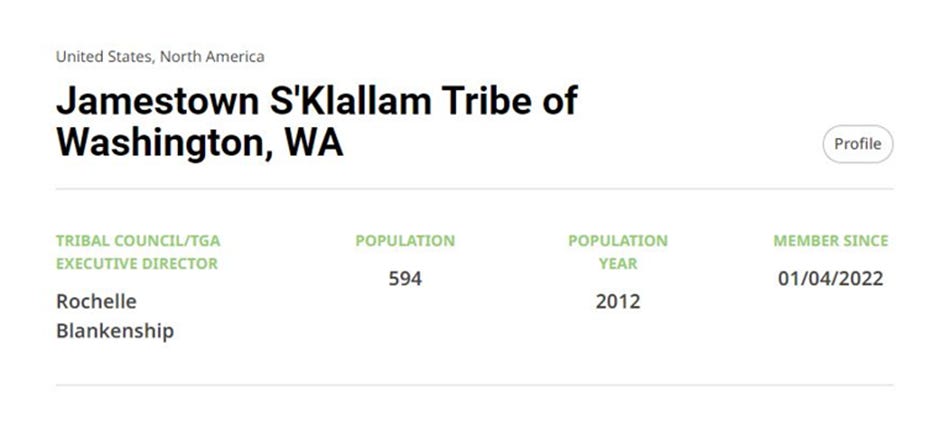
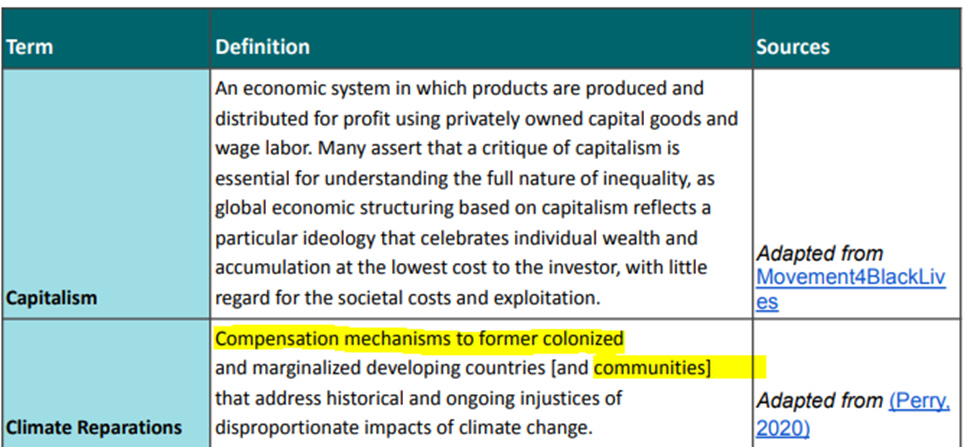

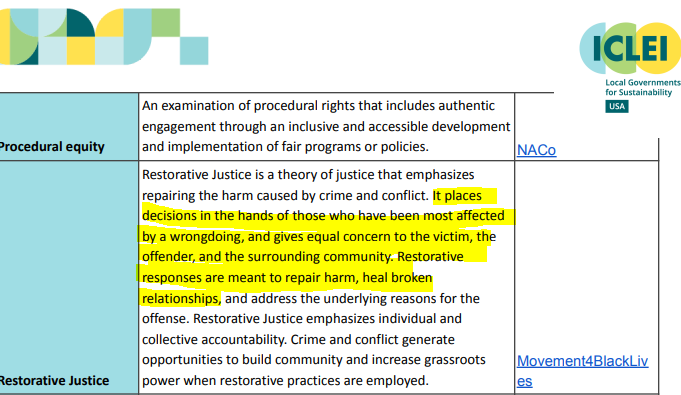
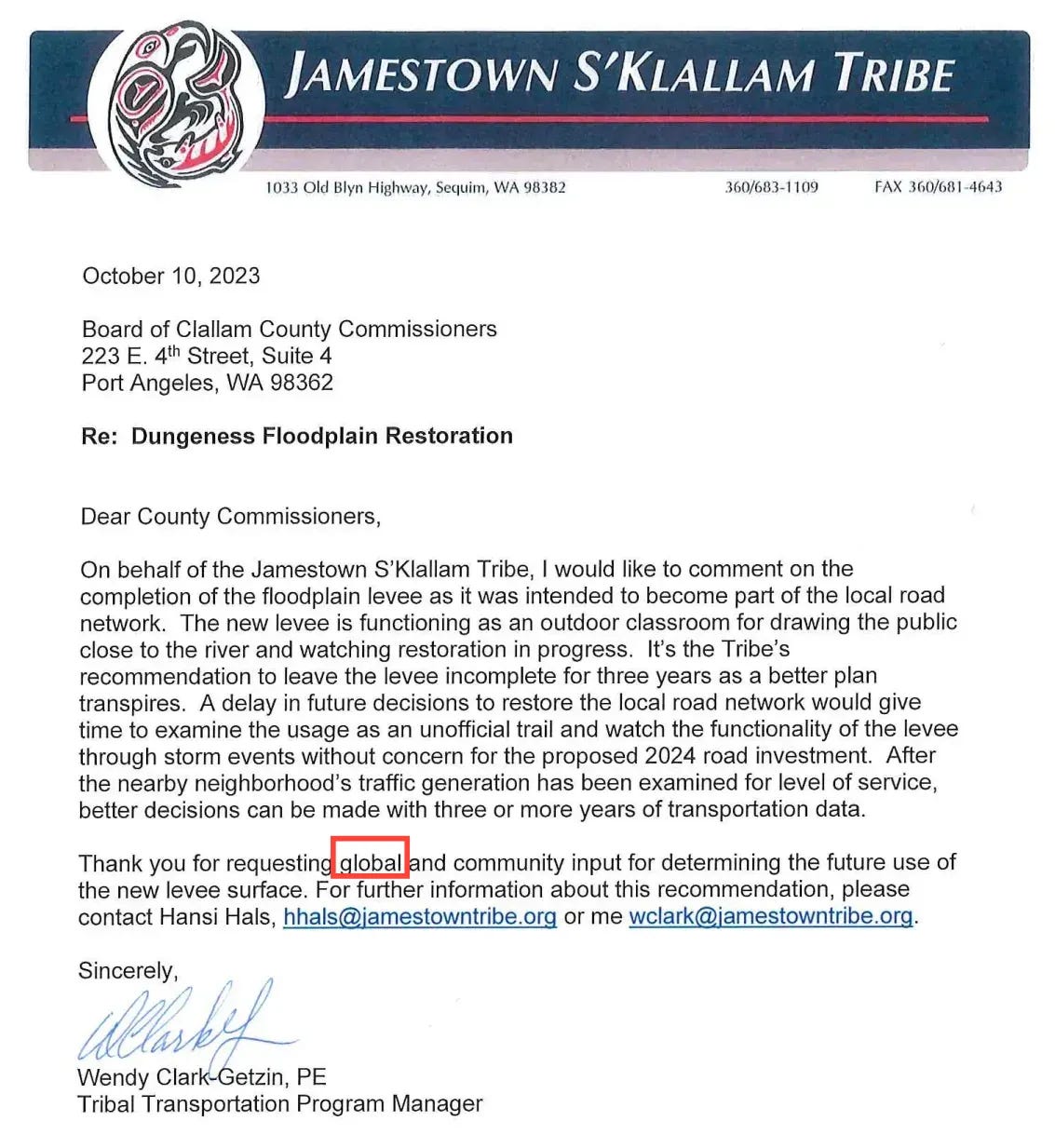
Thanks Jeff,
There it is. Unencumbered by BLM porn for everyone to see. Jeff is media and they know it. That's why his political pelt is worth so much and explains why so many people are after it.
We are a Soros City , County and State.
Its the job of Congress or the state department to negotiate with tribes and foreign governments. Because the City , County and State, usurp Congressional and State Department authority, they are unregistered foreign agents who illegally modified the Point No Point Treaty of 1855.
By not adopting the "one word" and by not adopting the Charter member bylaw amendment last week, Clallam County is giving its tacit approval of the Soros government status, and have made a public policy decision to stay the course and continue the illegal international "action plans."
They need one "DOGE" now..
Good column today Jeff. I see a $369k end around conveniently forgotten. Just a GRIFT plain and simple in my opinion. In my previous career I would have fired whoever authorized such an expense that was never brought to light, discussed and approved. I always felt anything paid out the back door or washed through a vendor was tantamount to theft. You might not be able to be legally prosecuted but you are done with this company.